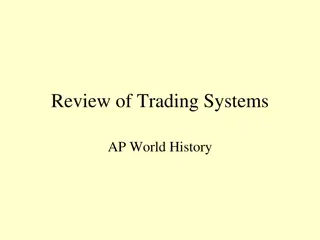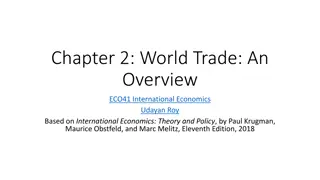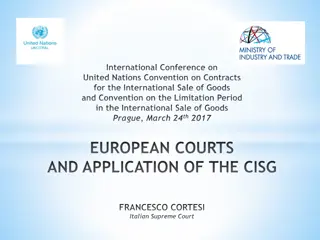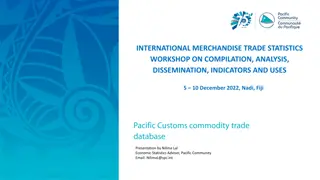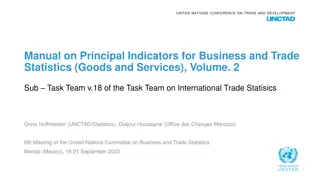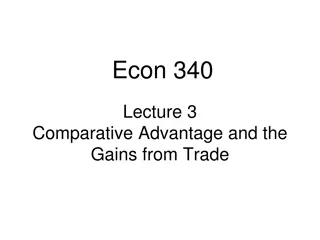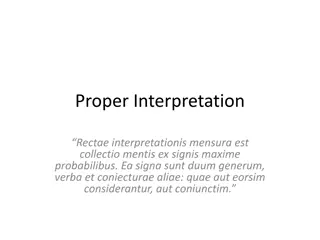Understanding the CISG in International Trade
The CISG, or the United Nations Convention on Contracts for the International Sale of Goods, provides uniform rules to facilitate international trade by addressing the formation of sale contracts and the rights and obligations of sellers and buyers. It promotes uniformity in application and good faith in international trade, but gaps in the convention are filled by general principles or applicable national law. Avoiding recourse to national law in interpreting the CISG is recommended to maintain consistency.
Download Presentation

Please find below an Image/Link to download the presentation.
The content on the website is provided AS IS for your information and personal use only. It may not be sold, licensed, or shared on other websites without obtaining consent from the author. Download presentation by click this link. If you encounter any issues during the download, it is possible that the publisher has removed the file from their server.
E N D
Presentation Transcript
The CISG represents uniform rules intended to contribute to removal of legal barriers in international trade and promote the development of international trade. The text of each provision of the CISG is a result of a compromise between different national approaches. The scope of the CISG is limited to formation of the contract of sale and the rights and obligations of the seller and the buyer arising from such a contract. The CISG prevails over national law where applicable.
In the interpretation of this Convention, regard is to be had to its international character and to the need to promote uniformity in its application and the observance of good faith in international trade. (Article 7(1) CISG) Article 7(1) CISG is often regarded as a prohibition of use of national law in interpretation of the CISG. In order to meet the requirements of Article 7(1) CISG, foreign court decisions have prominent position in interpretation of the CISG which, however, does not reach the level of stare decisis doctrine. Various supportive measures were adopted to promote the uniform application of the CISG (CLOUT, Advisory Council, Digest).
Questions concerning matters governed by this Convention which are not expressly settled in it are to be settled in conformity with the general principles on which it is based or, in the absence of such principles, in conformity with the law applicable by virtue of the rules of private international law. (Article 7(2) CISG) Article 7(2) CISG is a mechanism to fill the so-called internal gaps, i.e. questions which the CISG governs but does not clearly answer. Referenced general principles include those expressly mentioned in the CISG and others identified by case law and commentaries. According to some, international instruments such as PICC, PECL or CFR may be used to fill internal gaps. Recourse to national law is possible only as a measure of last resort.
The external gaps of the CISG are all matters falling outside of the scope of the CISG. The external gaps are filled by the national law applicable by virtue of the rules of private international law. The CISG explicitly identifies two external gaps in Article 4 CISG: The validity of the contract or of any of its provisions or of any usage; and the effect which the contract may have on the property in the goods sold. Otherwise, the border between internal and external gaps is blurred. Borderline matters include: set-off, assignment of receivables, contractual penalties or estoppel. External gaps may also be formed by the parties choosing to derogate from individual provisions under Article 6 CISG.
Interpretation Recourse to national law in interpretation of the CISG should be avoided. Internal Gaps National law may be used as ultima racio for filling of internal gaps. External Gaps National law should be used to fill the external gaps.
Ondej ech ondrej.cech@dentons.com +420 725 756 893 Ond ej ech







